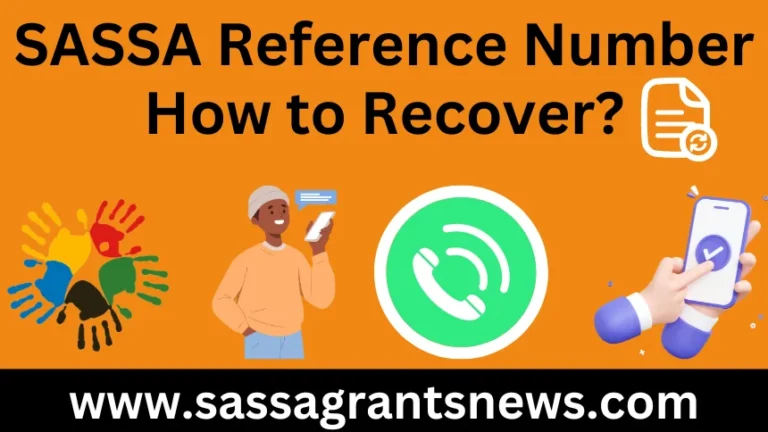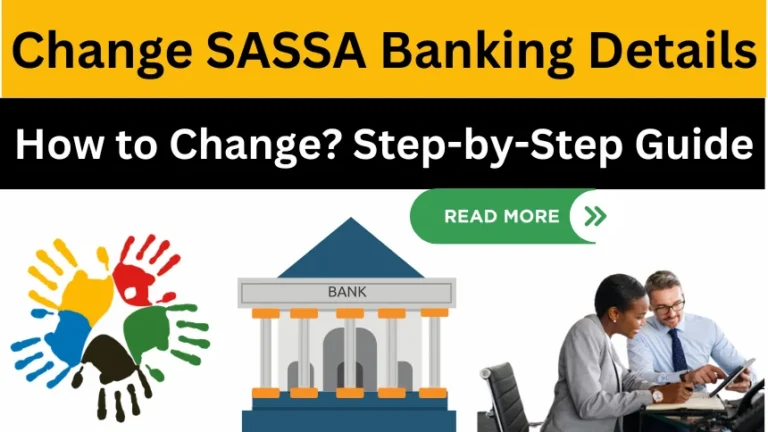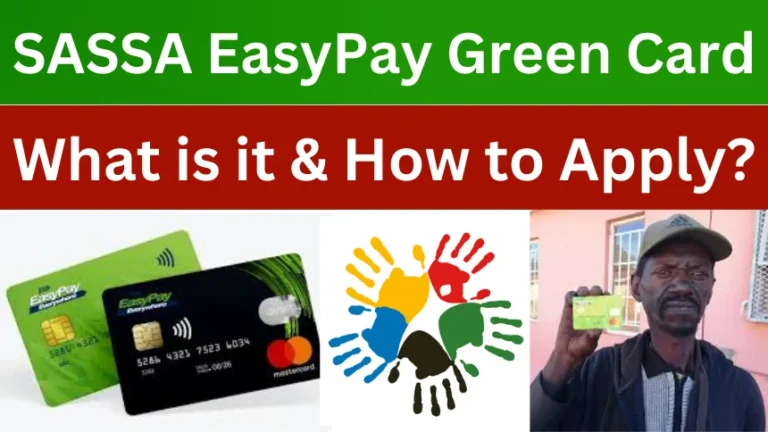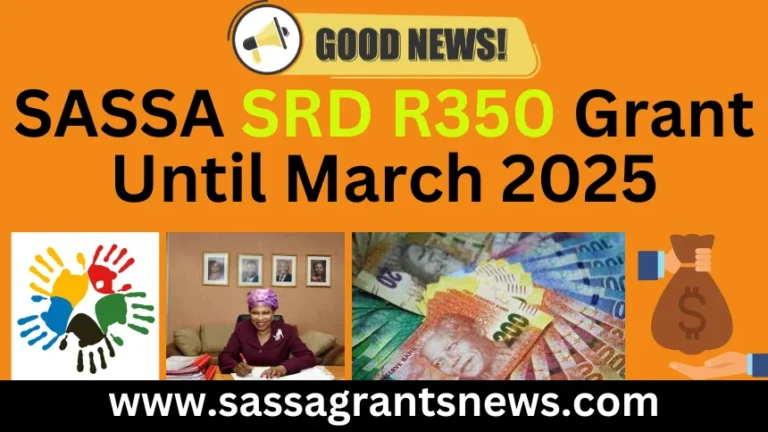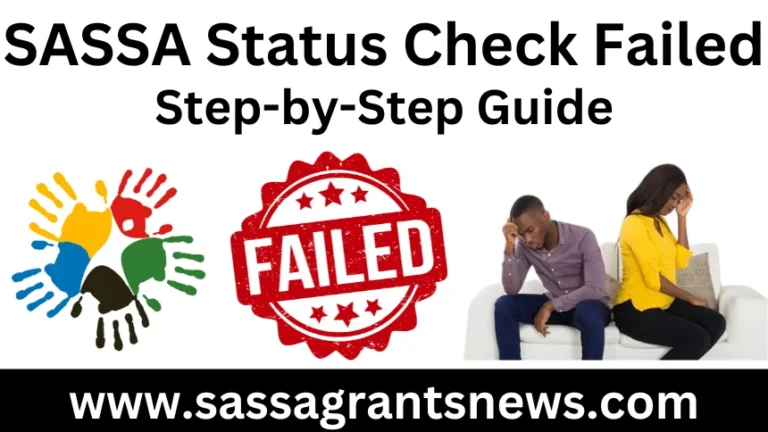SASSA Social Grant Types in South Africa
SASSA Social Grant Types in South Africa is a social grant is a monthly payment provided by the South African Social Security Agency (SASSA). The social grants in South Africa are relied upon by nearly 18 million people. Each SASSA grant has its own eligibility criteria and means test, and there are different types of grants available.
You will learn about the types of grants SASSA offers, the differences between each grant and how to select which type of grant you should apply for in this article if you are searching for government grants in South Africa. In this article, I will discuss each type of government grant offered by SASSA, their eligibility criteria, and what the monthly payments are for each type of grant.
Also Read About: SASSA Relief Grant Cancellation Guide: Step-by-Step
How do Social Grants work?
SASSA Social Grant to those who’s permanent residents of South Africa, including citizens, asylum seekers, and holders of special permits.
Only those who meet the eligibility criteria are eligible for these grants. Additionally, SASSA conducts a means test before approving grants to ensure that grants are allocated to those who genuinely need them and are eligible.
SASSA Grant Types in South Africa
SASSA administers eight types of government grants in South Africa. You must be a South African citizen, permanent resident, or recognized refugee in order to qualify for each type of grant.
For more information on each type of application, please read the criteria:
- SRD Grant R350
A Social Relief of Distress Grant (SRD) is also known as Temporary Assistance. The program was initially designed to provide temporary financial assistance to people facing financial difficulties to meet their family’s needs. However, the government has extended its validity until April 2025 as a result of continuing the program.
In order to be eligible for a SASSA Social Grant, the applicant must meet the following criteria:
- Applicants who are awaiting payment of their approved social grants.
- A family member who has been disabled for less than six months and is the breadwinner.
- In the event that the household’s breadwinner has passed away. An application must be made within 12 months of the death.
- One month of admission into a public or private institution is required for the breadwinner to qualify.
- A legal obligation to pay maintenance to a breadwinner is not being met by the breadwinner.
- During a disaster, as defined by the Disaster Management Act or the Fund Raising Act.
- When someone is going through a difficult time and cannot meet the basic needs of their family
In the case of the SRD grant, the monthly payment is R350. SASSA offices are located all over the country. You can visit one of them to apply. Detailed and complete information about the application process can be found at SRD R350 Grant.
- Older Persons Grant
SASSA old age grants are available to people over 60 who do not have any source of income.
In order to qualify for an old age grant, you must meet the following criteria:
- At least 60 years of age is required.
- The means test criteria should be met by your spouse.
- It is not advisable for you to live in an institution funded by the government.
- There should be no other social grant you are receiving.
- You and your spouse must provide 13-digit barcoded ID documents. Follow the SASSA-prescribed method for verifying identity if an ID card or birth certificate are not available.
An older person receives R2,090 a month as a grant. SASSA Social Grant offices can assist you with your application. The application process for old age grants can be found here.
- Disability Grant
A disability grant is provided to persons who can’t work for more than six months due to a mental or physical disability. You can apply for a SASSA disability grant regardless of whether you are temporarily or permanently disabled.
In order to be eligible for a disability grant, you must meet the following criteria:
- You must be between the ages of 18 and 59.
- An assessment or medical report confirming your disability is recommended.
- A referral form confirming the disability or clinical information must be provided.
- The Means Test must be passed by you and your spouse.
- State-funded institutions should not be your residence.
- There should be no other social grant you are receiving.
- Your 13-digit barcoded ID documents for yourself and your spouse should be submitted. You can verify your identity using SASSA’s prescribed method in the absence of an ID card and birth certificate.
Disability grants are paid monthly at a rate of R2,090. Visit your nearest SASSA Social Grant office to apply for the grant. See SASSA’s disability grant application for more information.
- War Veterans Grant
Veterans who fought in World War II or Korea are eligible for this grant. In addition, you must be at least 60 years old or disabled.
Applicants for the War Veterans grant must meet the following criteria:
- To qualify for the Means Test, both you and your spouse must meet the requirements.
- State-funded institutions should not be your home.
- There must be no other social grant you are receiving.
- Either you must be 60 years of age or disabled.
- The Second World War or the Korean War must have been fought by you.
- Please submit your 13-digit barcoded ID document and that of your spouse. To prove your identity, you will need to follow the SASSA-recommended method if your ID card and birth certificate are not available.
War veterans’ grants are payable monthly in the amount of R2110. I have written an article about SASSA’s War Veterans Grant which provides more details and instructions on how to apply.
Also Read About: How to Obtain, Use, and Secure SASSA OTP Codes
- Child Support Grant
You can apply for a child support grant if you are unable to fulfill your child’s basic needs as a biological parent or primary caregiver. You must have a child under the age of 18.
Child support grants are eligible if you meet the following criteria:
- Applicants and their children must both reside in South Africa.
- In order to obtain a birth certificate for a child, you must have it.
- Both you and your spouse must submit a 13-digit barcoded identity document. In the absence of an ID or birth certificate, an alternative identification prescribed by SASSA is acceptable.
- Children must be cared for by the applicant as the primary caregiver.
- Applicants and spouses must both pass the Means Test.
- More than six children cannot be supported by a child support grant.
- Children cannot be cared for by state institutions.
- Children of school-going age must attend school and provide proof of attendance. If the certificate is not produced or if the child does not attend school, the child support grant will not be rejected.
Child support grants are paid monthly at a rate of R510 per child. Each child will also receive a top-up of R250 per month. In total, you will receive 760 monthly payments per child. The application process and more details can be found in the Child Support Grant article.
- Foster Child Grant
The SASSA Foster Child Grant may be available to foster parents who are struggling to provide for their foster children. Foster care must be ordered by a court.
Foster Child Grant eligibility requirements are as follows:
- The foster parent will need to provide the court order confirming their custody of the child.
- Foster parents must take care of the child.
- Foster parents must provide their spouse and applicant with a 13-digit barcoded identity document.
- The birth certificate of the child will be required. SASSA will perform any alternate identification if an ID or birth certificate is not available.
A foster child grant of R1130 is paid each month. Learn more about SASSA Foster Child Grants and how to apply.
- Care Dependency Grant
You may qualify for a Care Dependency grant if you are a caregiver of a severely disabled child (mentally or physically). It must be a permanently disabled child who requires home care.
Care Dependency Grant applicants must meet the following criteria:
- Under 18 years of age is the minimum age requirement.
- As a baseline for assessment, applicants should provide the child’s clinical information.
- In order to confirm a child’s disability, he or she must undergo a medical or functional assessment.
- Applicants and spouses (excluding foster parents) must pass the Means Test.
- A state-funded institution should not be the permanent home for a care-dependent child/children.
- A birth certificate for the child will be required.
- A 13-digit barcoded identity document or smart ID card is required for each applicant and their spouse. The SASSA accepts alternative identification in the absence of an ID or birth certificate.
- Up to the age of 18, proof of school attendance is required if the child is of school-going age. The child support grant will not be refused if you do not provide this certificate or do not attend school.
You will receive a monthly payment of R2,090 once your care dependency grant is approved. You can read more details about SASSA Care Dependency Grants and how to apply here.
- Grant-In-Aid
The Grant-In-Aid is only available to current grant holders who are unable to care for themselves and need full-time home care. This grant is available only to Old Age, Disability, and War Veterans grant holders as a top-up to their main grant. As part of the grant, they will be able to hire someone to provide them with in-home care.
Grant-in-aid applications must meet the following criteria:
- It is another person’s responsibility to provide regular care for the applicant due to physical or mental disabilities if the applicant already receives a grant for older people, a grant for disabled people, or a grant for war veterans.
- The applicant should not be housed or cared for in an institution subsidized by the state.
- To confirm the applicant’s disability, a medical or functional assessment is required.
- The disability should be confirmed with clinical information or by submitting a referral form.
- In the event that the applicant has previously been rejected on medical grounds, a referral form should be completed by the treating facility or practitioner.
As soon as your grant-in-aid is approved, you will receive a monthly top-up amount of R510. Details and application procedures can be found in the SASSA Grant-In-Aid article.
SASSA Grant Rejection Reasons
The most common reason for rejection of SASSA grants is that the applicant applies for a different type of grant than the one for which they qualify. In order to apply for SASSA grants, you must first understand the eligibility criteria for each grant type and determine what grant category you qualify for.
SASSA rejected a large number of disability grant applications. Despite falling into the Care Dependency grant, they applied for the Disability grant because they weren’t aware of what grant type they should be applying for.
To reduce the chances of rejection, please check the SASSA eligibility criteria carefully before applying. As soon as your grant is approved, you will begin receiving payments immediately from the date you applied.
Check out SASSA’s appeal process to find out why your grant application was rejected and how to reapply.
Also Read About: SASSA Grants Cancelled: How to Reinstate Them
Conclusion
SASSA grant types and eligibility criteria should be understood if you are interested in applying for a SASSA grant. For your convenience, I’ve listed all the grants, including eligibility requirements, grant amounts, and monthly payments. You must meet the eligibility criteria of the grant you are applying for in order to be approved. You can ask questions about SASSA grants in the comments. You can find more detailed information about SASSA grants on our SASSA Updates blog.



